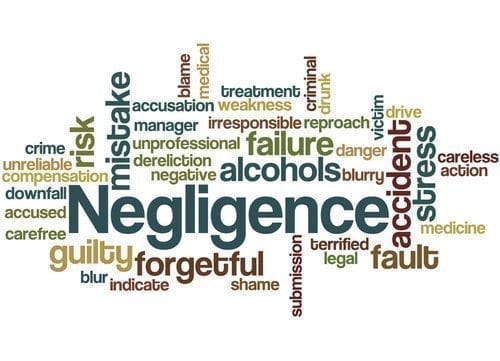
This post discusses NC Personal Injury – What is Contributory Negligence? Read on for an explanation and what this means to you as an accident victim. We represent personal injury clients in North Carolina and do not get paid unless we win your case. Call us today for a free case evaluation, (919) 615-3095!
NC is a contributory negligence state which means that if you are even 1% at fault for your car accident, you can not recover your losses. If the accident was not your fault, you can recover the costs of your doctor bills, lost wages and be compensated for your pain and suffering. Punitive damages are rarely awarded. In order for you to recover from NC Personal Injury Litigation, you must file your case in court before the statute of limitations runs out.
But what if you are at fault, or even partially at fault?
How does Contributory Negligence affect a NC Personal Injury case?
According to FindLaw, Contributory negligence is the legal theory that a:
"Plaintiff may not recover damages if even partially at fault. Party asserting this defense has the burden of proof".
Unfortunately, North Carolina is one of the few remaining contributory negligence states.
This means that if you get injured by the negligence of someone else, but your own negligence contributed to your injury, it is a total bar to recovery.
However, North Carolina law also has the Last Clear Chance Doctrine which says even if your own negligence contributed to your injury, if the other party had the last clear chance of avoiding the accident, then you can still recover.
The Doctrine of Last Clear Chance most frequently comes into play in a personal injury case in the context of a car accident. For example, if another driver ran a red light and hit you, but you were speeding, your speed becomes a factor in determining fault. Even if you were speeding, if it is determined that the last clear chance to avoid an accident belonged to the defendant who should have stopped at a red light, you are likely to still recover under those facts.
Generally though, the law of contributory negligence creates a harsh result for injury victims and that is why most other states do not use contributory negligence laws, but rather are comparative negligence jurisdictions.
Even though North Carolina law uses contributory negligence, the reality is that a jury who is sympathetic to a plaintiff's injury may be willing to award money in spite of these laws since most of these cases are decided in front of a jury and not a judge. However, juries are instructed by the judge at the close of trial to follow the law, so juror sympathy alone cannot be relied on for an injury victim’s recovery.
Most personal injuries cases are settled before trial with insurance companies who will often offer money to settle to avoid a larger jury verdict if they think your personal injury attorney can convince a jury of his/her client’s position.
Do other states use Contributory Negligence in Personal Injury Cases?
No, in fact, NC is only one of four states that still uses contributory negligence to determine liability. In other states they use comparative negligence or modified comparative negligence to determine how to compensate injured parties. If interested you can read more information from California Personal Injury Lawyer Steven Sweat and West Virginia Personal Injury Lawyer Jeffery L. Robinette.
NC Personal Injury cases can be complicated. Legal standards, questions about settlement, future medical treatment, and value of pain & suffering are issues that need to be discussed with an NC Personal Injury Lawyer. The Bishop Law Firm represents Personal Injury clients in Raleigh, Durham, Rocky Mount, Wilson, Smithfield, Louisburg, Chapel Hill, Roanoke Rapids and surrounding areas in North Carolina. Call us today for a free case evaluation, (919) 615-3095.
Also read: NC Car Accident Injuries and Settlements

